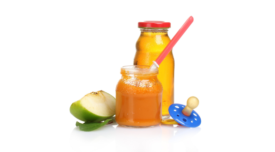Home » toxic heavy metals
Articles Tagged with ''toxic heavy metals''
Chemicals of Concern: The Social and Regulatory Evolution of the Baby Food Category
Changes in regulatory policy and guidance are on the horizon for heavy metals in baby food
August 8, 2023
Never miss the latest news and trends driving the food safety industry
eNewsletter | Website | eMagazine
JOIN TODAY!Copyright ©2025. All Rights Reserved BNP Media.
Design, CMS, Hosting & Web Development :: ePublishing










